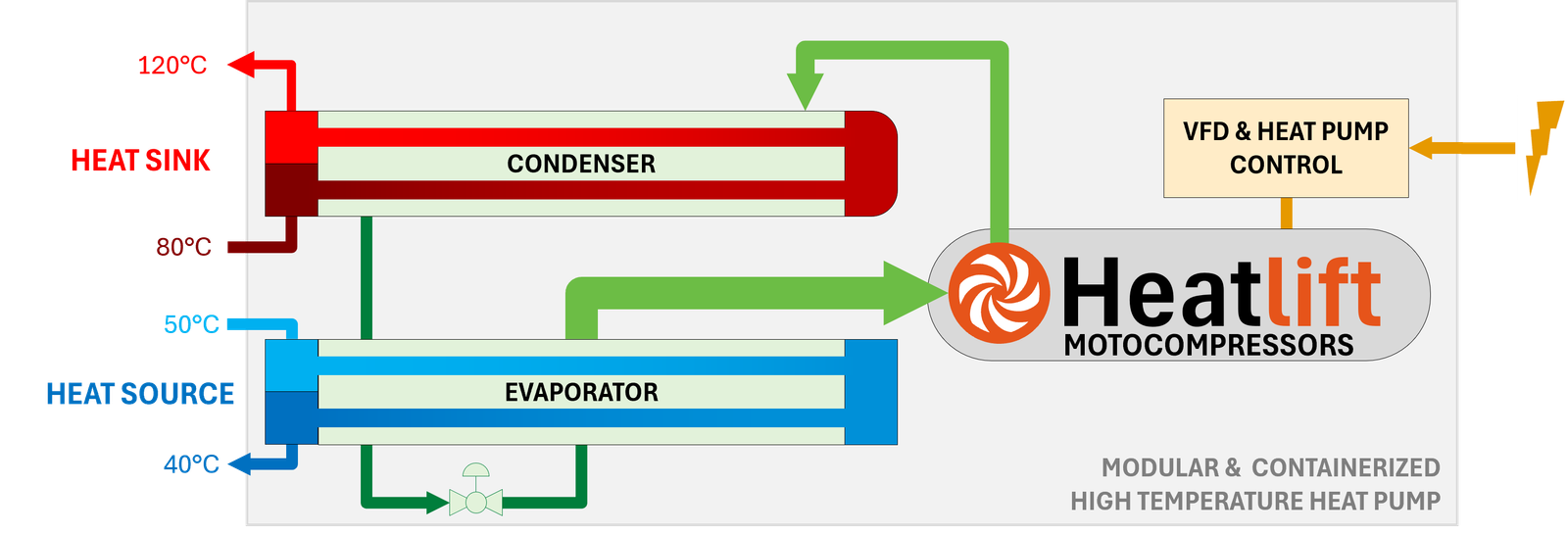Qu'est-ce qu'une PAC Haute Température ?PAC
Haute Température
Une pompe à chaleur très haute température (HTHP) est une technologie avancée conçue pour fournir des solutions de chauffage efficaces à des températures bien supérieures à celles des pompes à chaleur industrielles classiques. Alors que les pompes à chaleur industrielles standard fonctionnent généralement jusqu’à 90-120°C, les pompes à chaleur très haute température peuvent produire de la chaleur dans une plage de 100°C à 200°C, voire davantage, les rendant adaptées à une grande variété de procédés industriels.
Ces pompes à chaleur fonctionnent en récupérant la chaleur perdue des procédés industriel et en l'élevant à des températures plus hautes, pouvant ensuite être utilisées pour le chauffage, le séchage, la production de vapeur ou d’autres procédés thermiques. En valorisant la chaleur perdue, elles réduisent considérablement les besoins en énergie supplémentaire, entraînant une forte diminution des émissions de carbone.
Process Heat
HTHP
Waste Heat
cooling
air
loop
Fonctionnement d'une PAC
Principe
Les pompes à chaleur absorbent la chaleur d’une « source de chaleur » et la refroidissent en faisant évaporer un fluide frigorifique à basse pression, qui est ensuite compressé et condensé à haute pression tout en produisant de la chaleur vers un « puit de chaleur », avant d’être détendu à basse pression.

L’efficacité d’une pompe à chaleur est exprimée par le Coefficient de Performance (COP), le rapport entre la chaleur utile produite et l’énergie consommée : plus la différence de température entre les températures de sortie du puits et de la source (le « lift ») est importante, plus le travail de compression requis (et la consommation électrique associée) augmente, ce qui réduit le COP.
Pourquoi utiliser une PAC HT ?
Avantages
Nos pompes à chaleur très haute température (PAC HT) représentent une avancée majeure dans les technologies de chauffage industriel, offrant une solution durable et efficace pour vos besoins thermiques.
Économies d’énergie et de coûts
La consommation d’énergie finale peut être réduite jusqu’à 4 fois, générant d’importantes économies grâce à la valorisation de la chaleur perdue.
Réduction des émissions de CO₂
Remplacer votre chaudière à combustibles fossiles par des pompes à chaleur peut réduire vos émissions jusqu’à 10 fois.
Autonomie renforcée
Gagnez en indépendance énergétique grâce à la production locale d’électricité et à la valorisation de la chaleur perdue.
Gamme de fonctionnement
Gamme

Heatlift HTHP caractéristiques
Compresseur centrifuge
- Conception et fabrication internes
- Haute efficacité et optimisation du COP
- Compacité
Fluide de travail
- Nouvelle génération de HFO et alcanes
- Faible GWP and ODP
- Adapté à la plupart des procédés
Standard modulable
- Standard de 3 MWth pour la production de vapeur
- Module complet de la taille d'un conteneur
- Intégration plug & play








